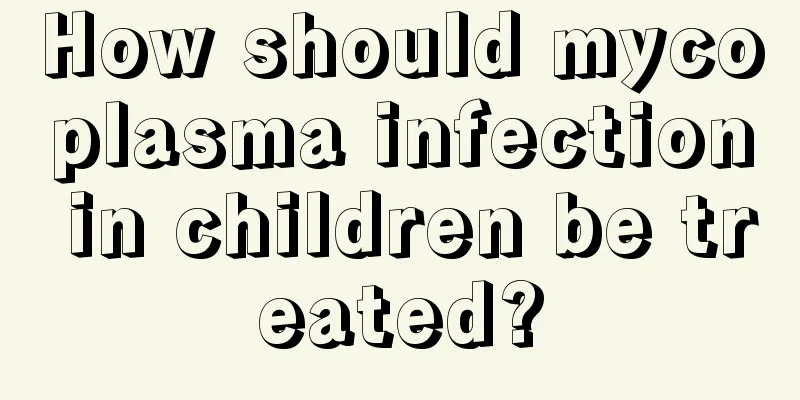What should I do if my arm is swollen after getting a vaccination?

|
After the baby is born, timely vaccination is necessary to prevent it from contracting some epidemic diseases. In many people's minds, vaccines are also called vaccinations, and different vaccinations should be injected at different time periods so that the efficacy of the medicine can be maximized. So, what should you do if your baby's arm is swollen after getting a vaccination? Parents are advised to learn more about the following treatment principles. 1. First, let’s take a look at why swelling occurs? The causes of swelling after vaccination are as follows: (1) Some vaccines have larger molecular particles, so the frequency of swelling is high, such as diphtheria, pertussis and tetanus vaccines, which is generally difficult to avoid; (2) Children have different physical constitutions. Some children have poor absorption of some vaccine ingredients. (3) Causes of infection (4) Allergies 2. How to deal with swelling? Treatment can be based on the cause of the swelling: (1) Before using large-molecule vaccines such as diphtheria, pertussis and tetanus vaccines, the vaccine must be fully warmed up and the solution must be fully shaken before aspirating to minimize the chance of swelling; (2) For children who have difficulty absorbing vaccine components, local swelling reduction treatment can be performed; (3) For some infections caused by scratching or getting wet, the affected area can be disinfected and then the swelling can be reduced locally; (4) Swelling caused by allergies can be treated with anti-allergic drugs, and the swelling can gradually subside; 3. Several simple methods for local swelling reduction; (1) Cold and hot compresses; first cold compress and then hot compress. Considering the treatment of various types of swelling, some vaccines require hot compresses at the beginning, and the temperature must be strictly controlled when using cold and hot compresses. Children's skin is delicate and easily burned (generally not recommended) (2) Apply potato slices locally; potatoes have the effect of astringing and reducing swelling and are relatively simple to use. Cut raw potatoes into thin slices, dig out the needle hole, and apply the slices locally; (recommended) (3) Others: anti-allergic treatment, subsequent magnesium sulfate wet compress, etc. |
<<: What vaccinations should be given at the age of four?
>>: What happens if I get a vaccination for jaundice?
Recommend
What to do if children have a cold, fever or cough
In our daily life, children's immunity is rel...
The baby suddenly has cramps and rolls his eyes. What's going on?
We know, when it comes to babies. As parents, we ...
What’s going on with the white spots on my 4-year-old baby’s face?
Children around four years old generally have rel...
What is the cause of the baby's fever after vaccination?
When we are very young, we need to get vaccinatio...
How to reduce swelling on a child's head
No matter what condition a child has, parents are...
What are the symptoms of bronchitis in two-month-old babies?
What are the symptoms of bronchitis in a two-mont...
What are the signs that your baby is not full?
Generally, when parents are taking care of their ...
What is the disease of blisters on baby's hands and feet?
What disease is it that blisters grow on the baby...
What to do if your child has stomachache
The stomach is an important digestive and absorpt...
What are the side effects of desensitization therapy in children?
Some people are born with more sensitive bodies, ...
How to wean baby off from night feeding? These methods are available
Breastfed babies need to feed many times at night...
How long should children take zinc supplements?
For children, they should pay attention to zinc s...
What to do if your baby's cough won't go away
The baby's cough cannot be cured because many...
What should I do if my child falls on his head and gets a bump?
Because children run and jump and are active in t...
The weight of a three and a half month old baby and its health
A baby is the apple of every mother's eye. Wh...









